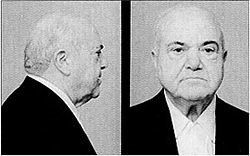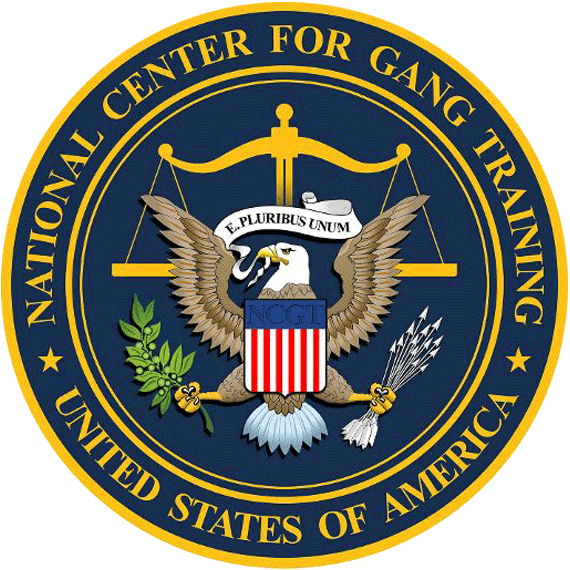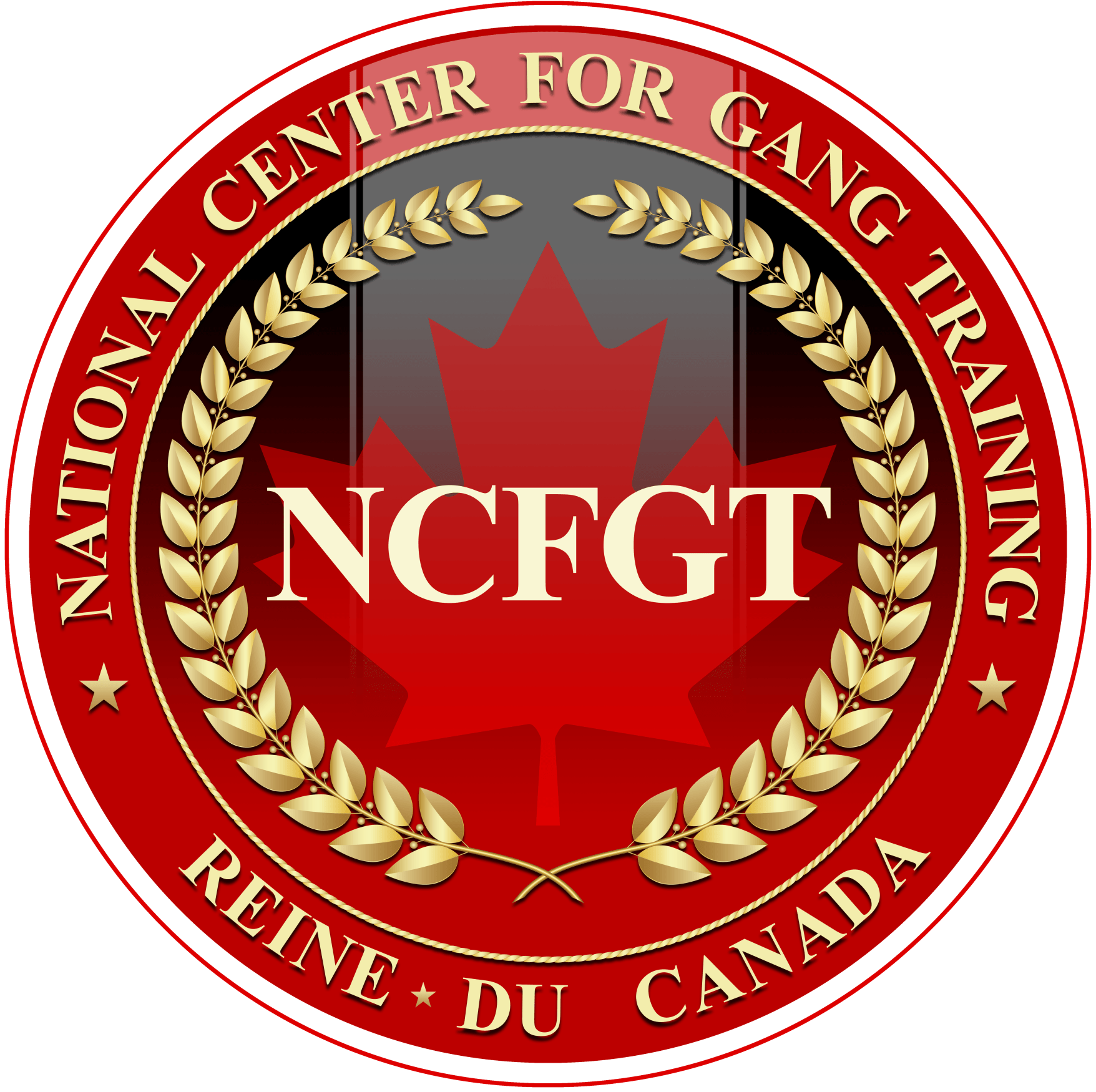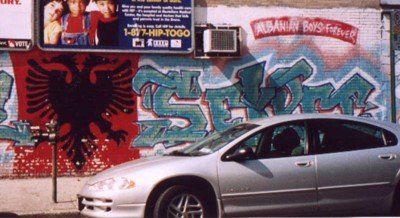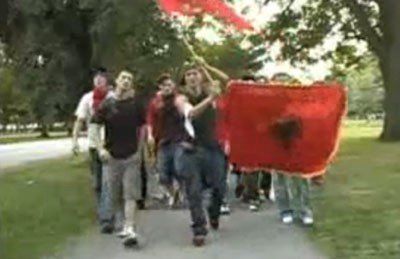Albanian mafia
Albanian mafia
The Albanian Mafia or Albanian Organized Crime are the general terms used for criminal organizations based in Albania or composed of ethnic Albanians. Albanian organized crime is active in Albania, the United States, and the European Union (EU) countries, participating in a diverse range of criminal enterprises including drug and arms trafficking. In Albania alone there are over 15 mafia families or clans that control organized crime.
Structure
The typical structure of the Albanian Mafia is hierarchical. Concerning "loyalty", "honor" and family (blood relations and marriage being very important) most of the Albanian networks seem to be "old-fashioned". Infiltration into these groups is thus very difficult. Albanian Mafia families or clans are usually made up of groups of fewer than 100 members, constituting an extended family residing all along the Balkan route from Eastern Turkey, to Western Europe, and North America. The Northern Albanian Mafia which runs the drug wholesale business is also known by the name of "The Fifteen Families."
According to Ioannis Michaletos, the family structure is characterized by a strong inner discipline, which is achieved by a means of punishment for every deviation from the internal rules, so that the fear should guarantee an unconditional loyalty to the family, with the provisions of the official laws considered to be secondary, not important and non-binding. Due to the fact that the Mafia families are based on the blood ties, which is a factor that restricts the number of the clan members, the bonds between them are very strong, which makes getting close to and infiltrating into them almost impossible. Members of other ethnic groups can be accepted only to execute certain one time or secondary jobs. Moreover, the Albanian mafia families are organized in 3-4 or more levels, which enable them to preserve the organizational action capability even in case some of its members or groups are captured.
Rudaj Organization
The most famous Albanian criminal organization was the Rudaj Organization. In October 2004, the FBI arrested 22 men who worked for it. This included its leader Alex Rudaj, and effectively ended the criminal organization. They had entered in the territory of Lucchese crime family in Astoria, Queens, New York, and are said to have even beaten up two made men in the Lucchese family. The name Rudaj comes from the boss of the organization. According to The New York Times published on January 2006, "Beginning in the 1990s, the Corporation, led by a man named Alex Rudaj, established ties with established organized crime figures including members of the Gambino crime family, the authorities say. Then, through negotiations or in armed showdowns, the Albanians struck out on their own, daring to battle the Lucchese and Gambino families for territory in Queens, the Bronx and Westchester County, prosecutors say."
"What we have here might be considered a sixth crime family," after the five Mafia organizations — Bonanno, Colombo, Gambino, Genovese and Lucchese — said Fred Snelling, head of the FBI's criminal division in New York.
International activity
Scandinavia
"The ethnic Albanian mafia is very powerful and extremely violent," said Kim Kliver, chief investigator for organized crime with the Danish National Police. Law enforcement authorities estimate that different Albanian mafia families may smuggle as much as 440 pounds of heroin a year into Scandinavia at any given time.
United States
"On the streets where the Italian Mob once ruled, a new syndicate was taking over, run by tough, ambitious Albanian immigrants, who still clump to a code of silence." - “We’re still trying to learn about their culture and figure out what makes them tick,” James Farley, FBI supervisory special agent, and expert on organized crime, says of the Albanians. “They’re difficult to infiltrate.” “We’re just now catching up with Albanian organized crime,” he says. While Italian gangsters may be three or four generations removed from the old country, the Albanians grew up under brutal communist regimes, engaging in protracted blood feuds with rival clans, and subscribing to a strict code of silence that makes the Italian credo of omertà seem playful. “The first generation Albanians have a tendency to be more violent” than American-born syndicates, claims Hall.
In the United States, Albanian gangs started to be active in the mid-80s, mostly participating in low-level crimes such as burglaries and robberies. Later, they would become affiliated with Cosa Nostra crime families before eventually growing strong enough to operate their own organizations under the Iliazi family name. Albanian organized crime has created new and unique problems for law-enforcement officers around the country, even threatening to displace La Cosa Nostra (LCN) families as kingpins of U.S. crime, according to FBI officials.
Speaking anonymously for Philadelphia's City Paper a member of the "Kielbasa Posse", an ethnic Polish mob group, declared in 2002 that Poles are willing to do business with "just about anybody. Dominicans. Blacks. Italians. Asian street gangs. Russians. But they won't go near the Albanian mob. The Albanians are too violent and too unpredictable." The Polish mob has told its associates that the Albanians are like the early Sicilian Mafia — clannish, secretive, hypersensitive to any kind of insult, and too quick to use violence for the sake of vengeance.
The Rudaj Organization, also called "The Corporation", was a well known Albanian criminal organization operating in the New York City metro area.
Italy
Albanian emigrants started arriving at Italian ports in 1991. By 1997 the immigration had come under the control of Albanian and Italian criminal groups, tightening relationships between them
The Albanians are targeting affluent central and northern areas like Lombardy, Piedmont, and Tuscany. One of Italy's top prosecutors, Cataldo Motta, who has identified Albania's most dangerous mobsters, says they are a threat to Western society.
"The road for arms and people, meaning illegal immigrants destined for Europe, is in Albanian hands."
"The Albanian Mafia seems to have established good working relationships with the Italian Mafia". "On the 27th of July 1999 police in Durres (Albania), with Italian assistance arrested one of the godfathers of the "Sacra Corona Unita", Puglia’s Italian Mafia. This Albanian link seems to confirm that the Sacra Corona Unita and the Albanian Mafia are "partners" in Puglia/Italy and delegate several criminal activities". Thus, in many areas of Italy, the market for cannabis, prostitution, and smuggling is run mainly by Albanians. Links to Calabria’s Mafia, the "Ndrangheta", exist in Northern Italy. Several key figures of the Albanian Mafia seem to reside frequently in the Calabrian towns of Perugia, Africo, Plati, and Bovalino (Italy), fiefs of the Ndrangheta. Southern Albanian groups also have good relationships with Sicily’s Cosa Nostra
"The Albanian criminals were special from the beginning," said Francesca Marcelli, an organized-crime investigator for the Italian government. They have strong motivations and are very violent."
Roberto Saviano, The Italian writer, a good expert of Neapolitan Camorra and the Italian mafia in general, spoke of the Albanian mafia as a “no longer foreign mafia” to Italy and stressed that the Albanians and Italians have a "brotherly" relationship between each other. Saviano notes that the Camorra from Naples can't understand the Russian clans, which aren't based on family ties, and feels greater affinity with the Albanian crime families.
In an Albanian television station ""ShqipTV" Saviano went on to say that the Albanian and Italian factions are "one of the same", and that they don’t consider each other as foreigners.
United Kingdom
Albanian mafia gangs are believed to be largely behind sex trafficking, immigrants smuggling, as well as working with Turkish gangs in Southend-On-Sea, who control the heroin trade in the United Kingdom. Vice squad officers estimate that "Albanians now control more than 75 per cent of the country’s brothels and their operations in London’s Soho alone are worth more than £15 million a year." They are said to be present in every big city in Britain as well as many smaller ones including Telford and Lancaster, after having fought off rival criminals in turf wars.
Albanian gangsters were also involved in the largest cash robbery in British crime history, the £53 million (about US$92.5 million at the time of the robbery) Securitas heist in 2006.
Germany
"Ethnic Albanians" (as the German police officially calls them), no matter where they come from — Albania, Republic of Macedonia, or Kosovo — created for a very short time in the last decade of the century, a very powerful criminal network, says Manfred Quedzuweit, director of the Police Department for Fighting the Organized Crime in Hamburg. Here, it could be heard that they are even more dangerous than Cosa Nostra.
Albanian "banks" in Germany are a special story. They are used for the transfer of money from Germany which amounts to a billion of D-marks a year. One of these banks was discovered by accident by the Düsseldorf police when they were checking a travel agency "Eulinda" owned by the Albanians. We haven't found a single catalogue or brochure for travelling at the agency, computers were not operating, nor has the printer been ever used. We found that "Eulinda" was a cover-up for some other business, said high criminal counselor from Düsseldorf Rainer Bruckert.
Eventually we found out that "Eulinda" had already transferred 150 million dollars to Kosovo — for "humanitarian purposes", says Bruckert. Money has been transferred by the couriers in special waist belts with many pockets. So, in a single one-way trip, they can carry up to six million D-marks.
Belgium
The Albanian mafia has deep roots in Belgium, which was recently a topic of a special programme on Belgian RTBF Channel One. Reporters tried to investigate the roots of Albanian organized crime but have complained that it is too hard to penetrate the structure and organization of the Albanian mafia, but set out that the Albanian mafia acts on the model of the Italian one, whose crime is part of the "activities of entire families" and which has a clearly defined hierarchy. The Albanian mafia in Brussels has monopoly over activities such as "narcotics and arms deals" according to Belgian sources.
Australia
Godfather of an Albanian Mafia family 'Daut Kadriovski' gained attention of Australian Authorities after creating a drug pipeline through Albanian and Croatian communities in Sydney and Brisbane.
Prominent Albanian Mafioso
- Alex Rudaj: The boss of the Albanian Mafia's Rudaj Organization based in the New York City area.
- Alfred Shkurti (also known as Aldo Bare): The boss of one of the most notorious criminal syndicates in Albania known as the “Banda e Lushnjës” (The Lushnja Gang).
- Enver Sekiraqa: Leading person of organized crime in Kosovo, aka “the boss of the bosses”, who is on the Interpol’s wanted list for several crimes.
- Ismail Lika: Ismail Lika was an Albanian mobster active in New York City in the 1980s. Dubbed the king of the New York drug underworld, Ismail Lika issued a contract on Rudy Giuliani's prosecutors in 1985. Caught with at least $125 million in heroin, Lika issued a $400,000 contract on the prosecutor Alan Cohen and the detective Jack Delemore, both placed under protective custody.
- Lulzim Krasniqi:(1863-2006) Former leader of the Albania Mafia based in Zagreb, Croatia.
- Almir Rrapo: Leader of the "Krasniqi Crew" based in New York and other US cities.
- Daut Kadriovski: The reputed boss of one of the 15 Families, embodies the tenacity of the top Albanian drug traffickers.
- Zef Mustafa: Albanian Mafia kingpin based out of New York.
- Agim Gashi: Leader of an Albanian Mafia clan based out of Italy.
- Osmani Brothers: According to the German Federal Intelligence Service (BND) the Osmani brothers as the "most important figures of organized crime in Hamburg and other cities in Germany"
- Adriatik Coli: Leader of one of the most powerful "15 families" known as " Banda e Lul Berishës" based in Durrës, Albania.
- Krasniqi Brothers: Bruno Krasniqi and Saimir Krasniqi; leaders of an international crime organization engaged in murder, kidnapping, narcotics trafficking and other illegal activities in Albania and the U.S.
- Myfit (Mike) Dika: Former drug kingpin of the “Balkan Criminal Enterprises”; an international criminal organization which spanned from Canada, the United States, to Europe.
- Kapllan Murat: Belgium's most notorious mobster. He was one of the masterminds behind the kidnapping of former Belgian Prime Minister Paul Vanden Boeynants in 1989. Three days later, the criminals published a note in the leading Brussels newspaper Le Soir, demanding 30 million Belgian francs in ransom. Paul Vanden Boeynants was released (physically unharmed) a month later, on 13 February, when an undisclosed ransom was paid to the perpetrators.
- Plaurent "Lenti" Dervisha: On the Interpol's and FBI's most wanted list as being the leading member of a criminal organization based out of Durrës, Albania, who Albanian authorities say is the brother-in-law of Lul Berisha;a reputed leader of one of the 15 mafia families.
In popular culture
In films
- An Albanian criminal organization in Paris is responsible for the kidnapping of Liam Neeson's character's daughter in Taken.
- Le Chiffre is the main villain of the 2006 James Bond film, Casino Royale, portrayed by Danish actor Mads Mikkelsen. Believed by MI6 to be Albanian, Le Chiffre is banker to the world's terrorist organizations.
- In the French movie The Nest the plot centers around an Albanian mob boss in police custody being escorted to The Hague.
- Albanian mobsters Rexho and Luan feature in the Danish crime film Pusher III.
- Dossier K, a Belgian crime thriller, portrays the Albanian mafia in Belgium.
- In "We Own the Night"; A final drug transaction is made with the Albanian Mafia.
- In the movie "In With Thieves" A blood diamond deal goes wrong which throws Albanian Mafioso into chaos in the criminal underworld.
In Television
- In the "Law and Order: Criminal Intent" episode "Blasters" (Season 6, Episode 9) two former childstars involved in bootlegging ring are being hunted down by the Albanian mob.
- The story arc "The Slavers" of the adult-oriented Marvel comic The Punisher: Frank Castle deals with Albanian criminals engaged in human trafficking.
- In the American TV show "No Ordinary Family" episode "No-Ordinary Mobster" deals with the main character attempting to stop violent Albanian Mobsters.
- Top Gear, a British car show, featured an episode (comedy) in which they tested three luxury automakers; Rolls-Royce Ghost, Mercedes-Benz S-Class, and Bentley Mulsanne, to see which would be best suitable for Albanian Mafia bosses.
In Games
- The videogame Grand Theft Auto IV features the "Petrela gang" a small crew of Albanian shylocks and goods smugglers. The only known members are Dardan Petrela, Kalem Vulaj, and Bledar Morina. Later in the game, Albanian gangs appear working as muscle for other organizations, such as the Cosa Nostra or the Bratva. In Liberty City the Albanian mob holds a stronghold in the Little Bay section of Bohan.
- In the video game Socom 2 your first mission is to capture several kingpins in Albania.
